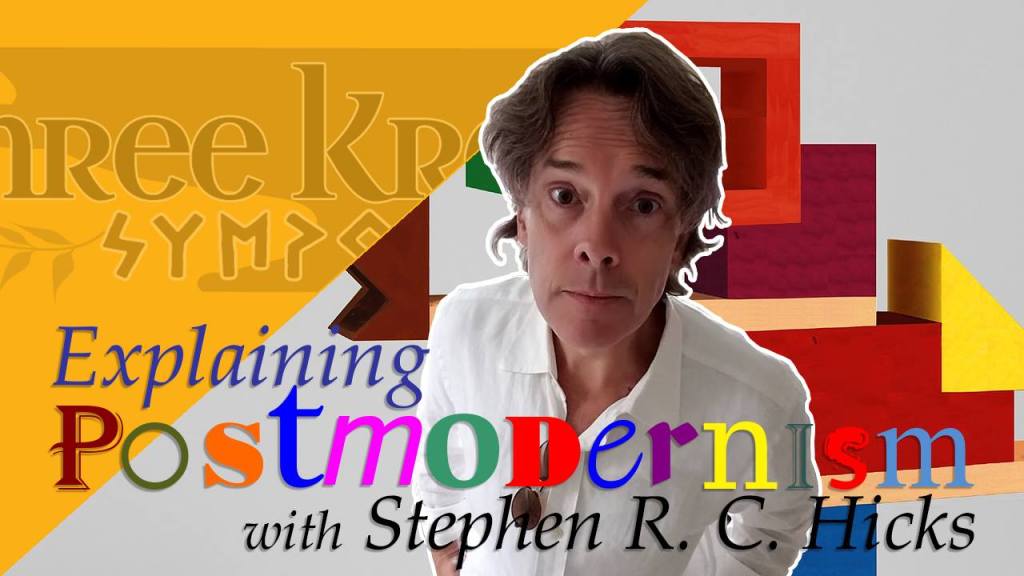The group (Greg Wilson, Rachel Fulton Brown, Micah Sample, Lewis Sloter, and Barry Jacobs) invited me to discuss themes out of my Explaining Postmodernism. The nearly two-hour conversation is at YouTube and embedded below. Our topics of discussion ranged over:
Kant * whether “the Enlightenment,” “Renaissance,” “Postmodernism,” and other broad labels are legitimate * the fact-value dichotomy * Marx and Heidegger as the proximate causes of pomo * Galileo and reason versus faith in the 1600s * revealed versus natural theology in the 1700s * Schleiermacher and theology of feeling * Freud on the theology of feeling * Galileo’s Letter to the Grand Duchess Christina * two meanings of “faith” * Hegel’s four claims * the abandonment of individuality * conservative reactions against the Enlightenment * second-generation postmodern activist practice and the use of shame, ostracism, and threats * pomo as used by those out of power * pomo activism as a Bootleggers and Baptists coalition and as turning your virtues against you * is virtue utilitarian, Kantian, subjective? * why the sympathy for the oppressed and Marx versus Nietzsche * is virtue about unselfishness and orienting yourself to God? * can pomo be consistent in belief and practice * power without humility as dangerous * what’s needed to defeat postmodernism * why power needs to be tied to rationality * virtue’s connection to reason * the place of tradition.
